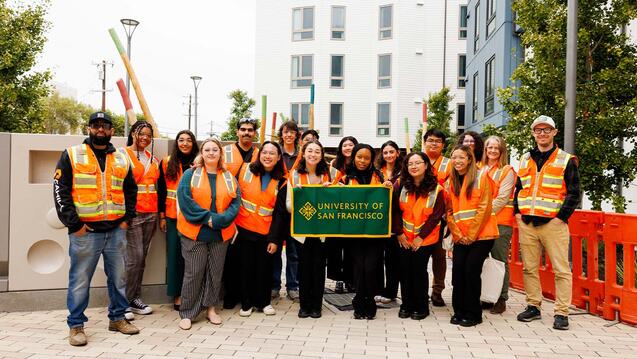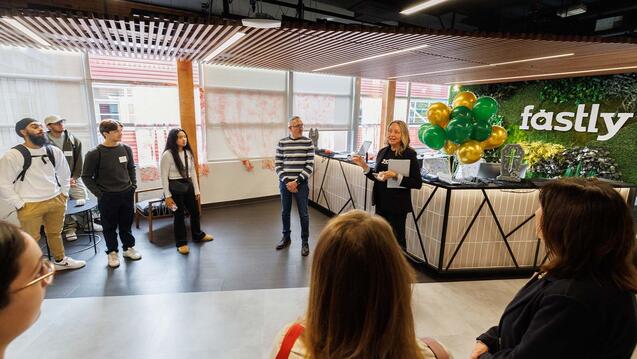Clinic Responds to Lack of Transparency at U.N. Meeting
Without agreed conclusions, human rights activists have lost a powerful advocacy tool, Director of the Frank C. Newman International Human Rights Law Clinic Connie de la Vega and clinic participants said.
“The resolutions passed and the debates, discussions and consultations, partnerships formed and networks strengthened made the CSW an important event,” said Birte Scholz ’99, a board member of Human Rights Advocates and former clinic participant. “But the fact that the CSW could…not agree on its conclusions, a document very important in shaping policy for women around the world, is disappointing to say the least.”
Two USF students attended the commission as Edith Coliver Interns representing the non-governmental organization Human Rights Advocates. In conjunction with this year’s emphasis on the empowerment of rural women and their role in poverty and hunger eradication, Lindsay Freeman 3L focused on chronic malnutrition, which has a disparate impact on women and people in rural areas. Cassandra Yamasaki 3L concentrated on how food insecurity impacts women’s personal security by increasing vulnerability to violence, abuse, and exploitation.
“From this great experience I learned how the United Nations operates, how to advocate for a cause, and, most importantly, how to creatively address the challenges that present themselves along the way,” Freeman said. “Although no agreed conclusions were produced…after a grueling two weeks in New York I know that more members of the U.N. and NGOs have heard of chronic malnutrition and are better informed about what it is, how it impacts rural women, and why it is an important issue.”
Member State representatives and non-governmental organizations gather at the annual CSW meetings to discuss issues pertinent to gender equality and the advancement of women, establish global standards and priorities, and develop policies. The meetings typically end with the adoption of agreed conclusions that provide recommendations for governments, intergovernmental bodies, and other stakeholders to be implemented at the international, national, regional, and local level. While non-governmental organizations do not vote on the agreed conclusions, they may present written and oral statements, lobby government delegations to incorporate language in resolutions and the agreed conclusions, and attend open meetings of the commission.
De la Vega, Freeman, and Yamasaki say the lack of transparency at this year’s CSW events influenced the meeting’s outcome, an issue they addressed in a letter on behalf of Human Rights Advocates to the chair of the Bureau for the Commission on the Status of Women, as the closed meetings made advocacy and agreement difficult and resulted in a lack of accountability for CSW members. Many delegates were inaccessible toward the end of the session because informal discussions were not open to NGO participation or observation.
“While we regret that our international delegates were unable to produce an outcome document this year, we hope that the CSW will consider the issue of transparency with an eye toward fostering greater cooperation and cohesion among all participants—for these are the cornerstone of international change and agreement,” Yamasaki said.
To read about the clinic’s advocacy at the CSW and the United Nations Human Rights Council, visit lawblog.usfca.edu/ihrclinic.


